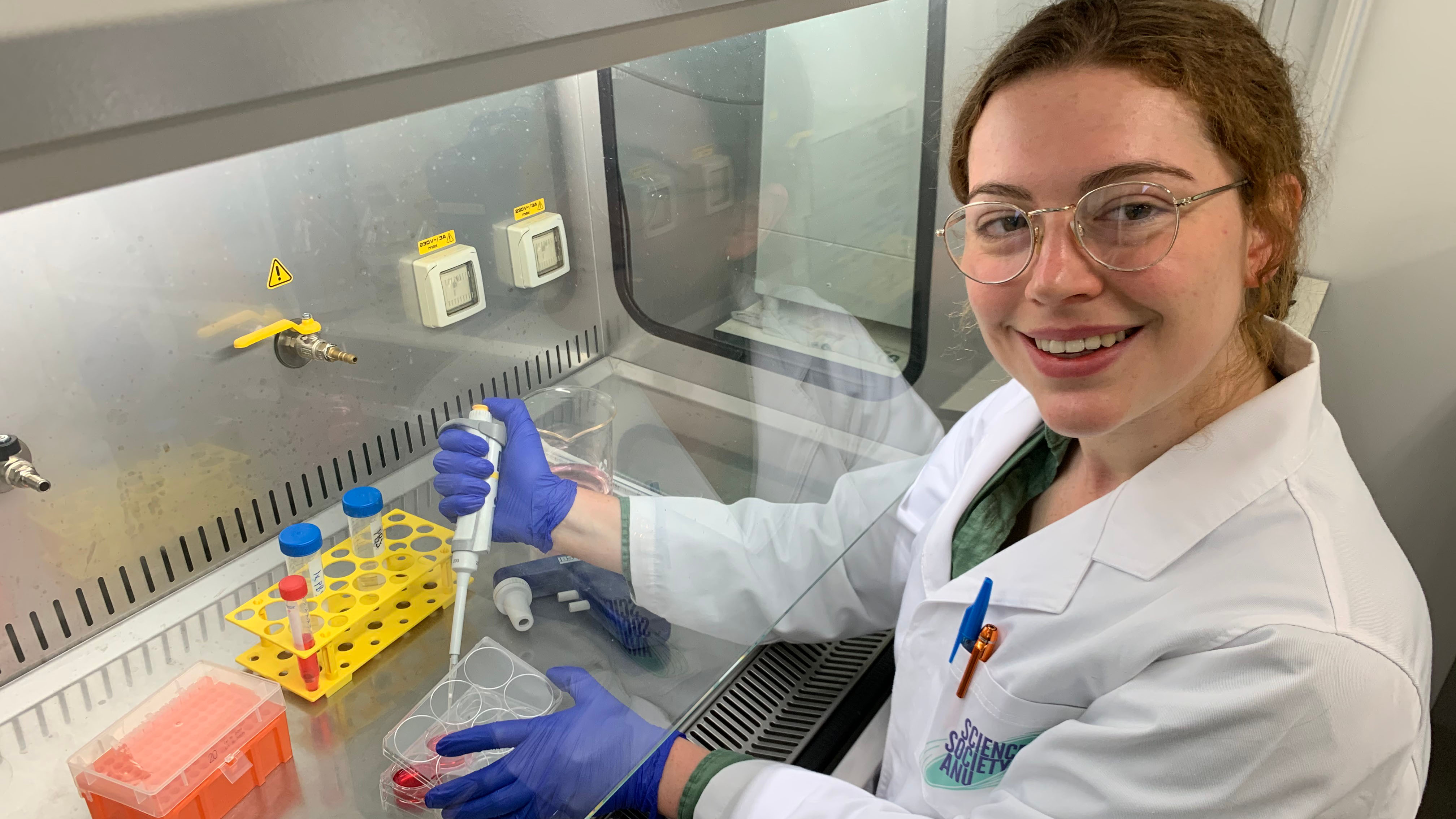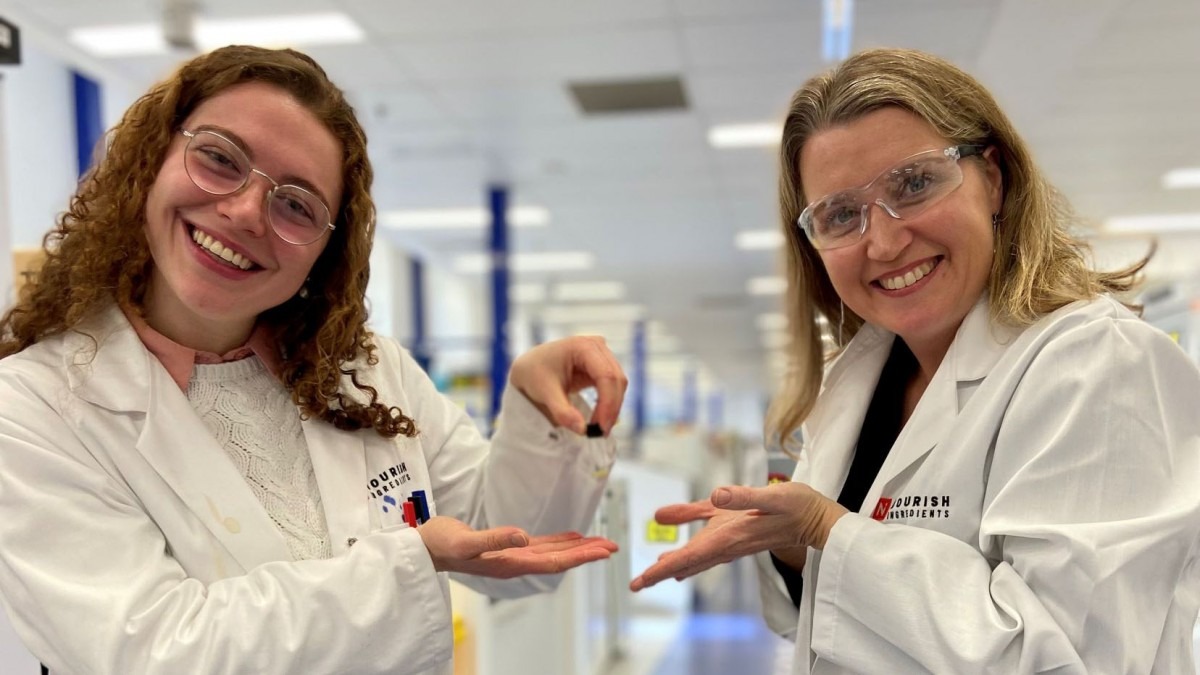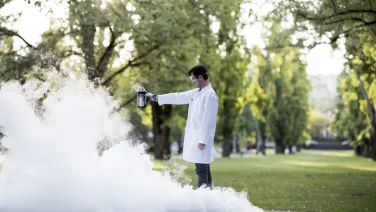Changing the steaks: how 'alternative fats' are shaping the future of food

“Lab-grown fat.” It sounds like a nightmare for marketing teams, but for scientists, it’s a key ingredient for the future of food.
Fats play a critical role in our enjoyment of food: think juicy burgers and chips, steaks and schnitzels, butter and cream.
But can you replicate that experience while avoiding animal products?
That’s the challenge ANU science graduate Ruth Purcell was working to solve in her role as a synthetic biology scientist at Nourish Ingredients, a cellular agriculture start-up based out of the ANU Research School of Chemistry.
“Mouthfeel is a big thing,” Ruth explains. “And also cooking properties – alternative protein foods just don’t perform as well in the pan if you don’t have fats at the right temperature and reacting the same way.
“The fats used in most meat alternative products are usually coconut or palm oil. They just don’t taste as good or give you the same experience as what you’d expect from eating animal products.”
With the hope of making your mouth feel nothing but satisfied when biting into a plant-based burger, the team at Nourish Ingredients are looking towards an entirely different source of fat: yeast.
Yeast is commonly used in the production of wine, beer and bread. If you feed yeast the right kind of sugars or starches it produces alcohols and carbon dioxide as by-products through the process of fermentation.
It’s also easy to genetically manipulate, enabling scientists to engineer yeast strains that produce different by-products.
“You can throw all kinds of genes at yeast – a lot of them will just happily take up these gene fragments and incorporate it into their own genome,” says Ruth.
At Nourish Ingredients, yeast is engineered to produce fat molecules that are biologically identical to their animal-based counterparts, resulting in much better textures and aromas for alternative-protein foods.
Of course, it may be one thing to win over the tastebuds of people who enjoy eating meat and other animal products – but what about the hearts and minds of those who are suspicious of lab-developed foods?
Ruth argues that a change in perception is needed.
“A lot of what you eat, unless you’re picking an apple straight off a tree, is going to go through some degree of research and development as well as food processing before you eat it,” she says.
“Cell-based meats are meat: on a molecular level, they’re identical. No animals were killed in the process, and you can also engineer out the bad parts of meat, like reducing cholesterol levels or including other valuable nutrients like omega-3 into beef products.”
It’s important, Ruth says, to find ways to diversify what’s available in our food system.
“The global population is set to hit almost 10 billion by 2050 and our current food system does not have the capacity to support that many people. We need to come up with new, efficient methods to produce more food with minimal environmental impact—alternative proteins are a part of the solution.”
Ruth’s science career started with a Bachelor of Philosophy at ANU, where she completed her honours in biochemistry and molecular biology. She says her degree opened the door to working with Nourish Ingredients and even joining an ANU-based research project testing wastewater to monitor the spread of COVID-19.
Now, Ruth is a PhD researcher at The Doherty Institute in Melbourne, where she’s investigating differing COVID-19 immune responses in people who have recovered from infection, been vaccinated, or both.
It may seem a long way from engineering fat molecules, but the broader focus on health is what ties everything together.
“As a cell biologist, it’s easy to get fixated on one tiny protein or one tiny pathway,” says Ruth. “But working at Nourish Ingredients, then on the sewage testing, and now doing my PhD – it’s helped me see how all these systems fit together.”
If you have big scientific ideas you want to explore through a flexible research-focused degree, check out the Bachelor of Philosophy (Honours) in Science at ANU.


